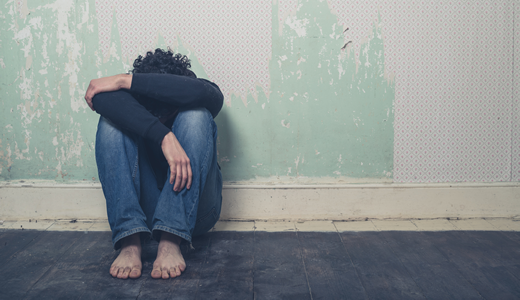More and more young people are struggling with suicidal thoughts and actually taking their own lives, according to recent research reported by USA Today. The suicide rate for children ages 10 to 14 doubled between 2007 and 2014, according to the Centers for Disease Control and Prevention. And a new Vanderbilt study that analyzed data from the Pediatric Health Information System found that hospitalization of children ages 5 to 17 for suicidal thoughts more than doubled from 2008 to 2015.
What’s influencing this tragic trend? While scientists can’t absolutely answer that question, they have some theories. The combination of cyberbullying with easy to access to online information about self-harm is a toxic blend. “The media that children are exposed to gets more and more sophisticated and more and more graphic and so kids get exposed to more and more things,” said Dr. Dan Nelson of the Cincinnati Children’s Hospital Medical Center.
Meanwhile, research published in the journal Transitional Psychiatry indicates that 36.1% of girls and 13.6% of boys are or have been depressed by the time they reach 17, reports The Washington Post.
In her article “The Kids Are Not All Right” analyzing the study, National Review writer Mona Charon suggests we need to go beyond just implicating social media and screen time and look carefully at the breakdown of the family as well.
She writes, “There is no doubt that social media bring out the savage in human nature (Twitter is enough to depress me), and surely ‘helicopter’ parents should permit their kids to grow up, but these explanations strike me as wide of the mark. The most consequential social change of the past several decades is not the dawn of social media but changing family structure, and it turns out that adolescent depression and suicide are closely linked with divorce and single parenting. Teens who live with a single parent have twice the rate of suicide attempts as those who live with both parents. The same is true of other forms of distress and self-harm.”
Some experts believe that one important way to address teen’s online lives is to talk about them regularly. “It’s normal to have conversations about crossing the road, bullying and talking to strangers, but with the digital world changing all the time, it can be hard to have conversations about staying safe online,” says Amanda Azeez, associate head of child safety online at the UK’s National Society for the Prevention of Cruelty to Children. “We really want to help parents and carers [caregivers] to feel more confident and to talk to their children at least every two weeks, if not more regularly.”
Parallel to that suggestion is encouragement from New York Times contributor Dr. Perri Klass for parents to have what she calls “The Other Talk,” the one about pornography. Klass writes, “Whatever filters you install on phones, laptops and other technology, whatever limits you may set on how and when and where children use their devices, children still need open and ongoing conversations with their parents about the sexually explicit images and information they may encounter online.”
A similarly titled report out of Harvard, entitled “The Talk,” explores attitudes toward love, sex and romance among 18- to 25-year-olds today. On the positive side, the report indicates that Millennials aren’t as interested in casual sex or hooking up as many reports in the culture might indicate. That said, Harvard psychologist Richard Weissbourd, lead author of the report, also told ABC News that his team’s research uncovered “two pervasive problems. … One is, we are failing … miserably to prepare young people for romantic love, probably the most important thing they will do in life. The second is that there are very high rates of misogyny and sexual harassment.”
Elsewhere in the news this week, some are wondering whether digital assistants such as Amazon’s Alexa are undermining the manners of children who use them.
Finally, remember that video Miley Cyrus filmed for her song “Wrecking Ball” back in 2013? The one where she swung on that aforementioned ball sans clothes? For anyone who thought, “You’re going to regret that later,” Miley has now reached the same conclusion. “That’s something you can’t take away. Swinging around naked on a wrecking ball lives forever,” Cyrus recently joked on the Zach Sang Show. Cyrus also added, “I’m never living that down. I will always be the naked girl on a wrecking ball. I should have thought how long that was going to have to follow me around. That’s my worst nightmare, is that being played at my funeral.”






Recent Comments